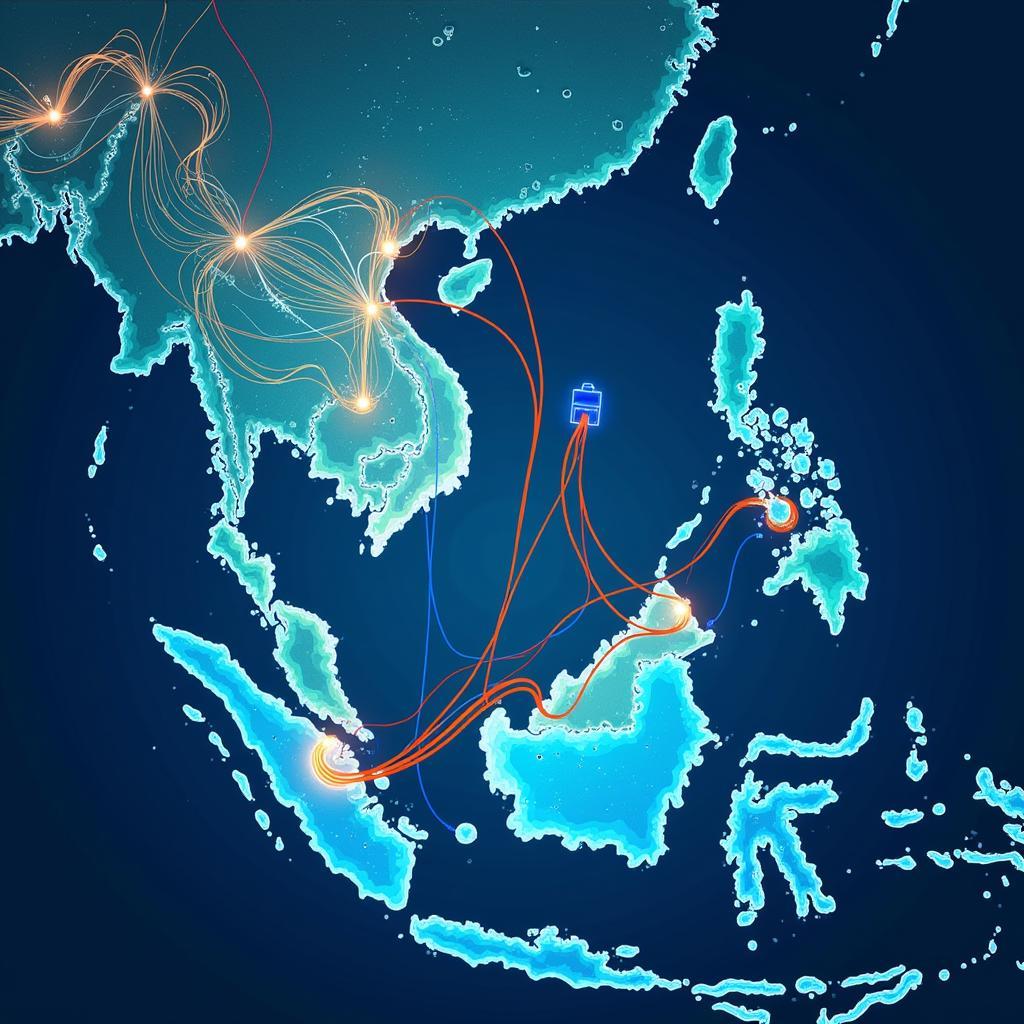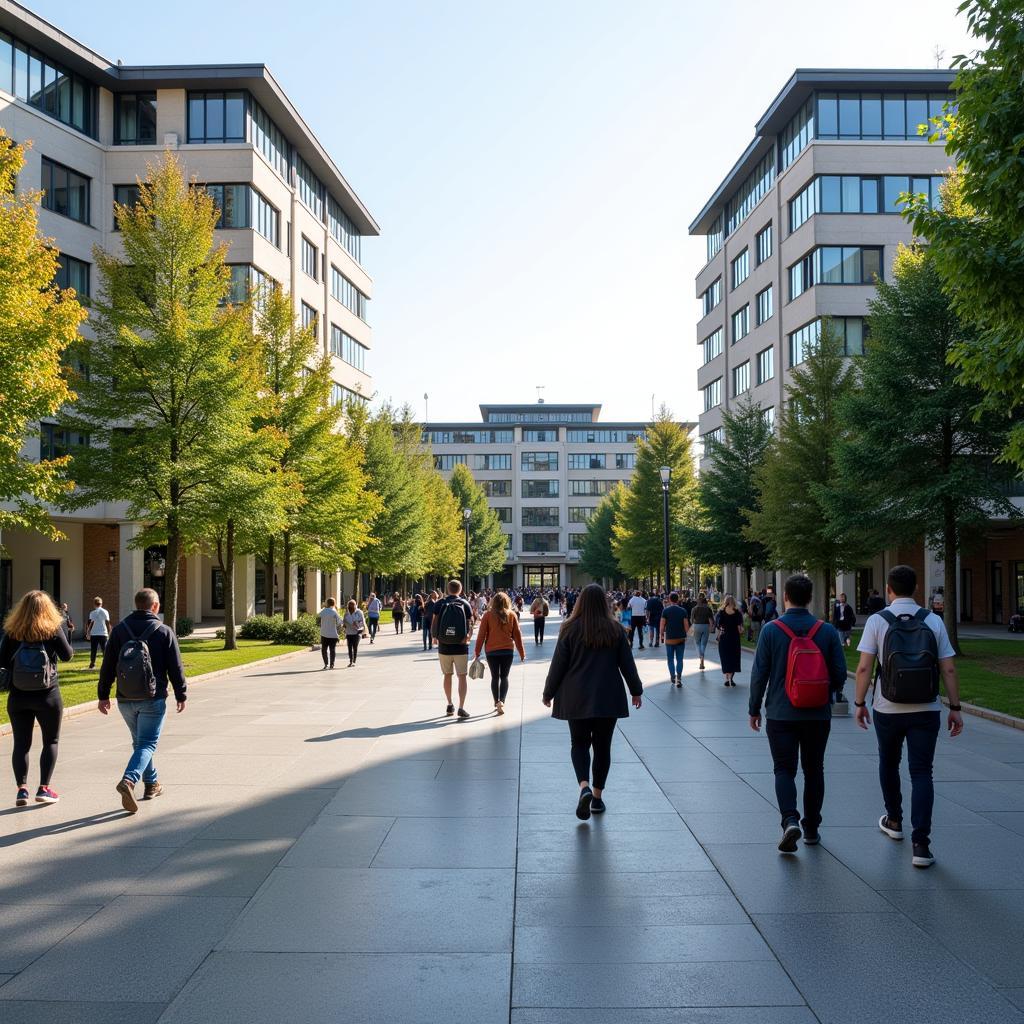ASEAN UDLA, short for Universal Design for Learning in ASEAN, is gaining traction as a vital framework for inclusive education and digital literacy development within the Southeast Asian region. This approach recognizes the diverse learning needs and preferences of individuals and promotes the creation of flexible learning environments and resources accessible to all. This article delves into the significance of ASEAN UDLA, its impact on education and digital literacy, and its potential to empower individuals and communities across the diverse ASEAN landscape.
The Significance of ASEAN UDLA in the Digital Age
ASEAN UDLA plays a crucial role in bridging the digital divide and promoting equitable access to education and information. By adopting the principles of universal design, educators and policymakers can create learning experiences that cater to a wide range of learners, including those with disabilities, diverse cultural backgrounds, and varying levels of digital literacy. This inclusive approach is essential for maximizing the potential of digital technologies for learning and development across the ASEAN region.
Empowering Learners through Flexible and Accessible Resources
One of the key benefits of ASEAN UDLA is its focus on providing flexible and accessible learning resources. This means creating materials that can be adapted and customized to meet the individual needs of each learner. For example, digital textbooks can be designed with adjustable font sizes, alternative text for images, and audio descriptions for students with visual impairments. Online learning platforms can offer multiple modes of interaction, such as text-based discussions, video conferencing, and interactive simulations, to accommodate different learning styles and preferences.
Fostering Collaboration and Knowledge Sharing
ASEAN UDLA promotes collaboration and knowledge sharing among educators, policymakers, and researchers across the region. By working together, these stakeholders can develop best practices, share resources, and create a supportive ecosystem for the implementation of UDLA principles. This collaborative approach is essential for ensuring that ASEAN UDLA reaches its full potential and benefits learners throughout Southeast Asia.
ASEAN UDLA: Addressing the Challenges of Digital Literacy
The rapid advancement of technology presents both opportunities and challenges for ASEAN nations. While digital technologies have the potential to transform education and empower individuals, there is also a growing digital divide that threatens to exclude marginalized communities. ASEAN UDLA offers a framework for addressing these challenges by promoting inclusive and accessible digital literacy development.
Building Capacity for Digital Literacy Instruction
Effective implementation of ASEAN UDLA requires building the capacity of educators to design and deliver inclusive digital literacy instruction. Teachers need training on how to use assistive technologies, adapt digital resources, and create learning environments that cater to diverse learning needs. Professional development programs and ongoing support are crucial for ensuring that educators have the skills and knowledge they need to implement UDLA effectively.
Creating Culturally Relevant Digital Content
Digital literacy in ASEAN must be grounded in cultural relevance. This means developing digital content that reflects the diverse cultural values, languages, and traditions of the region. Culturally relevant digital resources can enhance learner engagement and motivation, making digital literacy education more meaningful and effective.
ASEAN UDLA: A Vision for the Future
The future of ASEAN UDLA lies in its ability to empower individuals and communities to thrive in the digital age. By promoting inclusive and accessible digital literacy, ASEAN UDLA can unlock the potential of all learners and contribute to the social and economic development of the region.
Promoting Lifelong Learning and Innovation
ASEAN UDLA encourages lifelong learning and innovation by providing individuals with the skills and knowledge they need to adapt to the rapidly changing digital landscape. This includes fostering critical thinking skills, problem-solving abilities, and creativity, which are essential for success in the 21st century.
“ASEAN UDLA is not just about accessibility; it’s about fostering a culture of inclusivity and empowerment where all learners have the opportunity to reach their full potential in the digital age.” – Dr. Anya Sharma, Educational Technology Specialist
Building a More Equitable and Inclusive ASEAN
By embracing the principles of ASEAN UDLA, Southeast Asian nations can build a more equitable and inclusive society. This means ensuring that all individuals have access to the education, information, and opportunities they need to participate fully in the digital economy and contribute to the region’s growth and prosperity.
“Investing in ASEAN UDLA is an investment in the future of our region. By empowering all learners with digital literacy skills, we are creating a more resilient and prosperous ASEAN.” – Mr. Kenji Tanaka, Digital Inclusion Advocate
Conclusion
ASEAN UDLA offers a powerful framework for promoting inclusive education and digital literacy development in Southeast Asia. By embracing the principles of universal design and fostering collaboration across the region, ASEAN nations can empower all learners to thrive in the digital age and build a more equitable and prosperous future. The adoption and implementation of ASEAN UDLA are crucial for unlocking the full potential of the region’s human capital and ensuring that no one is left behind in the digital revolution.
FAQ
- What is ASEAN UDLA?
- Why is ASEAN UDLA important for Southeast Asia?
- How can ASEAN UDLA benefit learners with disabilities?
- What are some examples of ASEAN UDLA in practice?
- How can I get involved in promoting ASEAN UDLA?
- What are the key challenges to implementing ASEAN UDLA?
- What is the future of ASEAN UDLA?
Need support? Contact us 24/7: Phone: 0369020373, Email: [email protected] or visit us at: Thon Ngoc Lien, Hiep Hoa, Bac Giang, Vietnam.


